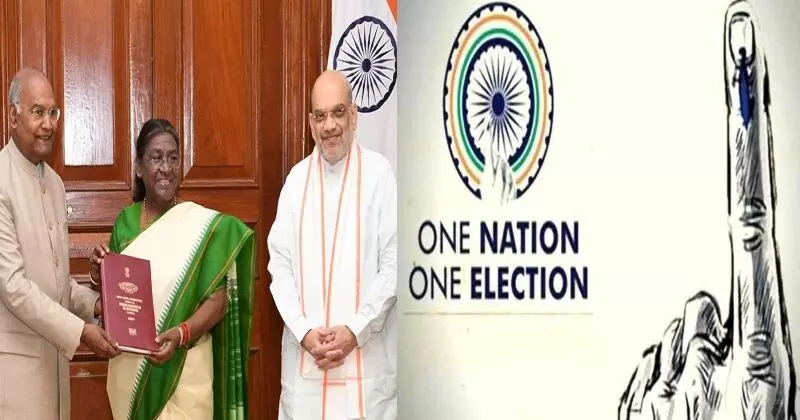Exploring ‘One Nation, One Election’ - The Why, The How, and Everything in Between
Discover the benefits of reducing electoral costs and boosting governance efficiency, the constitutional amendments required, and the diverse opinions from political and legal experts on this transformative proposal.
image for illustrative purpose

The concept of ‘One Nation, One Election’ proposes a unified electoral process where all Indians vote for both Lok Sabha and Assembly representatives in the same year, possibly concurrently. A committee led by former President Ram Nath Kovind advocated for this approach, emphasising the need for a sustainable mechanism to align electoral cycles.
The committee, established in September, conducted thorough research on international practices and engaged with a broad spectrum of stakeholders, including political parties, economists, and experts on the Single Election System. Their comprehensive report, presented to President Droupadi Murmu, strongly supported the concept of simultaneous elections. It proposed that these elections could be strategically aligned with local body polls, occurring 100 days afterwards.
Although initially part of the BJP's 2019 manifesto, the proposal for simultaneous elections in India has faced criticism from opposition parties, particularly regarding constitutional concerns.
Currently, only a few states, like Andhra Pradesh, Sikkim, and Odisha, synchronise their state elections with the Lok Sabha polls. The remaining states follow separate election cycles, leading to logistical and financial challenges. Implementing the benefits of One Nation, One Poll could significantly alleviate these challenges.
The government argues that simultaneous elections would reduce costs and administrative burdens, as well as minimise disruptions caused by the frequent application of the Code of Conduct. Additionally, it aims to boost voter turnout, which varies significantly across states.
Implementing 'One Nation, One Election' necessitates amending several articles of the constitution, including those governing the term and dissolution of parliament and state legislatures. Legal experts caution that failing to obtain widespread ratification for this Election Commission proposal could undermine the proposal’s legitimacy and its adherence to India’s federal structure.
A major challenge is determining procedures in case of premature government dissolution, such as through a no-confidence motion. Mandating fresh elections for all states would be impractical. This complex issue has elicited diverse political party perspectives on the feasibility and implications of a unified electoral system.
In summary, while ‘One Nation, One Election’ offers potential benefits in terms of efficiency and governance stability, its implementation requires careful consideration of constitutional amendments and broad political consensus.

